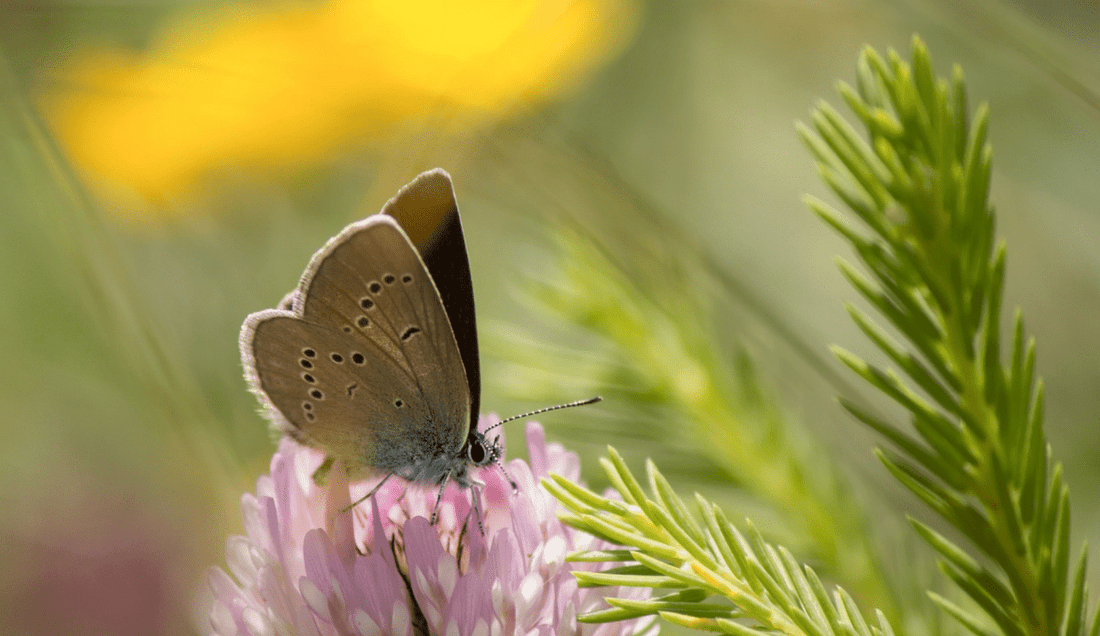They crawl across the ground, move in the water or fly buzzing through the air. They live among us in their trillions, almost unnoticed. But once they are gone, we notice the enormous loss. Insect mortality: a serious problem with drastic consequences.
Insects are the most species-rich and numerous inhabitants of our planet. Over one million insect species inhabit the earth together with us - and they make up around two thirds of all species! The tiniest of them are barely a millimeter in size, while the longest measure a good half a meter. In the insect world, there are inconspicuous specimens as well as enchantingly beautiful ones, such as butterflies, but also less appealing representatives such as the marmorated stink bug, which is currently spreading in Europe and has no predators here. Insects are herbivores or extremely good hunters - it makes little difference whether they spin webs or pounce on their prey at lightning speed, as praying mantises do.
In addition to solitary insects, there are many colony-forming insects with complex social structures that we still do not fully understand. These include ants, but also wasps and bees. We hardly notice most insects unless we "use" them, as in the case of commercially kept bee colonies. It has therefore taken far too long for the public to become aware of the dramatic decline in the insect world. Because the insect population is declining. In Germany, for example, three quarters (!) of the insect biomass has disappeared in the last 25 years. Entire species are highly endangered - including many butterflies and wild bees. Insect extinction is in full swing.
What does insect mortality mean?
Organizations such as the WWF and the Nature and Biodiversity Conservation Union have been drawing attention to the decline of our six-legged friends for some time now. Insect mortality has consequences for us all. On the one hand, insects are pollinators, without which agriculture would not be possible, but they are also an important part of the biosphere, as they remove decaying plants and carrion and loosen up the soil. At least as important is the fact that there are animal species, especially bird species, which will also become extinct if insects disappear. The worrying thing is that insect extinction affects ALL species. The reasons are easy to identify.
What causes insect death?
Long-term studies have shown that there is a direct link between land and forest use and insect mortality. Heavily cultivated, fertilized areas treated with pesticides or herbicides mean death - especially for insects that do not travel long distances. The "couch potatoes" also suffer when they can colonize a relatively untouched area in the middle of heavily cultivated land. Everywhere insects lack places of refuge: fallow land, meadows with wild flowers or simply the field margins as we used to know them, hedges and orchards allow insects to find habitats and food. Industrial mowing, possibly simultaneously on huge areas, contributes to mass extinction. In addition to insects, small mammals and birds are also among the victims.
Our cities are hostile to life - especially for insects
Even in urban areas, death awaits most insects. Sealed soils, gardens with imported plant species that offer insects no food, no unused meadows or open water areas - and above all constant lighting! The light sources disturb the insects' rhythm of life, cause them to fly around until they are exhausted or are so hot that they burn the little creatures.
Why are insects so important?
In the truest sense of the word, we cannot afford to do without insects. As pollinators in agriculture alone, insects provide an annual service that amounts to more than 14 billion euros for Europe alone! Without insects and insect diversity, we too would be left behind. Not only would we have to do without fruit or vegetables, many flowering plants and trees are also dependent on the "work" of insects - entire biotopes would become impoverished and the complex logistics of the food chain would also collapse. This is because numerous bird and fish species feed on insects.
Need for action on insect protection
The extent to which agriculture contributes to insect mortality can be seen in the example of Germany. However, farmers can hardly be deprived of their livelihoods. Any strategy to save insects must therefore start with the farmers. The German Farmers' Association itself relies on the establishment of flowering and fallow strips. But the use of insecticides and herbicides must also be further restricted as quickly as possible. While France has already banned the highly toxic neonicotinoids, Germany is still arguing about glyphosate, a poison that not only kills animals and plants, but also people. However, experts concede that a ban alone is not enough. Because then, they fear, farmers will reach into the poison cabinet again - and possibly to more dangerous substances.
First steps are already being taken
There are already isolated attempts to protect biodiversity and thus also insects. Swiss farmers have realized that biodiversity also offers protection against diseases and pests. Prudent agriculture can promote biodiversity - by opening up areas and the targeted cultivation of numerous species. This approach is opposed to industrialized agriculture with its depleted soils and streamlined, species-poor livestock populations. However, the supporters of sustainable agriculture are certainly successful, and they are growing in number.
Each of us can make a contribution
Although we at NIKIN are primarily concerned with sustainable materials in the fashion industry and fighting against global deforestation, it is important to think sustainably in other areas of life too. We want to motivate people to rethink their lifestyle and possibly make it more sustainable. In our blogs we not only talk about the above-mentioned topics, but also about various other interesting aspects of nature - in this blog we talk about the global extinction of insects. With minimal changes to our lifestyle and consumption habits and more mindfulness, we can all help to protect the insects that are so important to us in the way that they deserve and we need!























